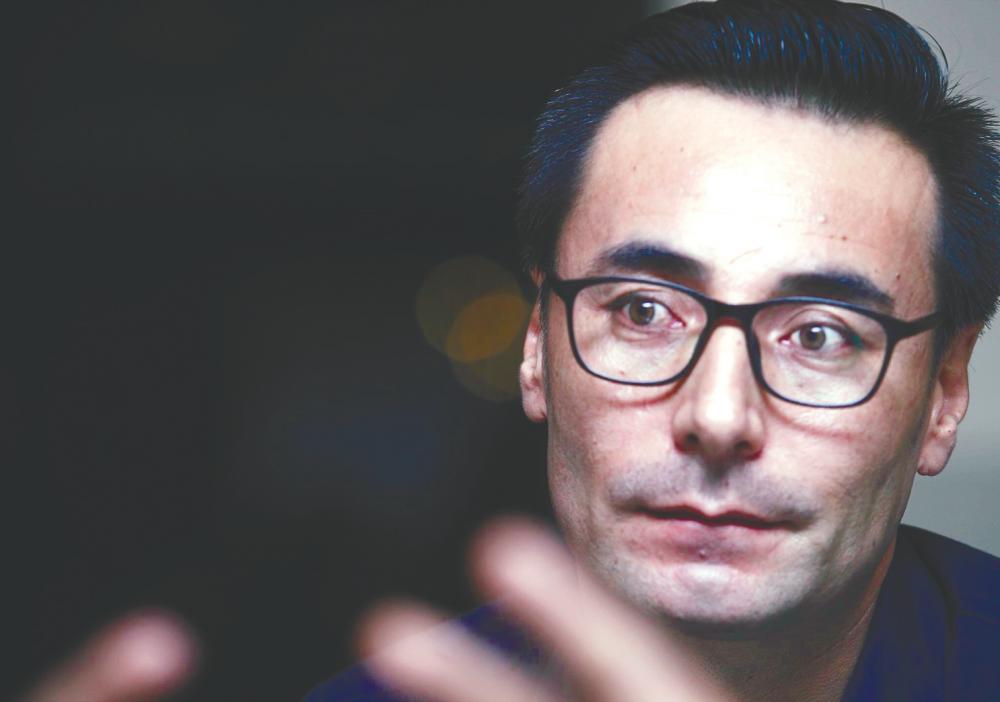SALEH SEPAS wants ordinary folk to know the issues facing displaced people far from their home countries, in his play about refugees by refugees.
Saleh, himself a refugee from the Ghazi state in Afghanistan, sees his theatre production, In Search of Identity, as a form of therapy for the actors to cope with their daily struggles as well as to open the eyes and minds of its audience to what the refugees have to endure.
The 36-year-old director said: “I have my script ready, and I have my actors ready. But I do not have any finances yet to put up the play.”
In Search of Identity, his third production to date under his Parastoo Theatre, is planned for The Refugee Fest taking place at MAP Publika from June 13 to 16.
The play is about a refugee child bride with a baby girl who is abandoned by her husband for not giving him a son. Homeless and forced to fend for herself and her child, her life becomes intertwined with other refugees.
The show will feature 12 actors, most of whom do not have any theatre experience, Saleh says at a recent interview. “Some of them are acting for the first time, and others are acting for the second time.”
He believes acting can be excellent therapy for refugees. “They learn to cope with their struggles and understand their situation better,” he says, adding that acting can also help boost their confidence and communication skills.
He adds that he wants to remind refugees to learn to work together and support each other, even if they are from different countries.
“When you do that, you can reduce the problems you face,” he says. “You can’t always depend on the government for support. You must learn to be independent.”
Besides highlighting the issue of child brides, he hopes his play will give the audience a glimpse into the daily life of refugees and some understanding of their situation.
He also wants to dispel the notion by some people that certain countries the refugees had fled from are now safe for them to return home.
Citing Syria and Afghanistan, his home country, as examples, Saleh says despite the militant group ISIS having left Syria and the presence of Nato peacekeeping forces in Afghanistan, it is still not safe and the security risks are too high.
Saleh still recalls his life before becoming a refugee here and the time he was studying fine arts in the Afghan capital of Kabul in 2001.
“We are not encouraged to study the arts in Afghanistan,” he says. “Out of a population of 30 million, there were only 30 students in the arts faculty.”
Of that number, only 12 were studying theatre, and he was one of them.
He says everyone he knew preferred to do engineering, law, medicine, or political science, and they were trying to discourage him from taking the arts. But he stuck to his guns.
“I have always gone against the grain,” he says, and he had the support of his father, who was a farmer.
Saleh recalls: “My father was illiterate. But he was open-minded, and he wanted me to take up whatever that made me happy.”
Though he was unable to read or write, his father encouraged reading and critical thinking, and Saleh grew up in a household surrounded by all kinds of books.
After graduating from his studies, Saleh had a fulfilling career in short films, feature films and theatre productions. He moved on from being an actor, to a scriptwriter and director.
In his works, he always fought for freedom of expression, and that landed him in trouble with Islamic extremists who threatened his life and the lives of his loved ones.
So in 2016, he came to Malaysia as a refugee together with his wife and their three young children.
The moment he arrived here, he started his Parastoo Theatre, and came out with his first big production, Bitter Taste of History, in 2017. The play dealt with the issue of child soldiers.
The following year, he presented his second theatre production, Screaming in Silence, which focused on child marriages.
When asked why he likes to highlight children in his productions, Saleh says: “Children are always innocent. They get oppressed in wars. Usually they do not have a voice to express their disappointments.
“I want to give voice to these children through my theatre productions.”













